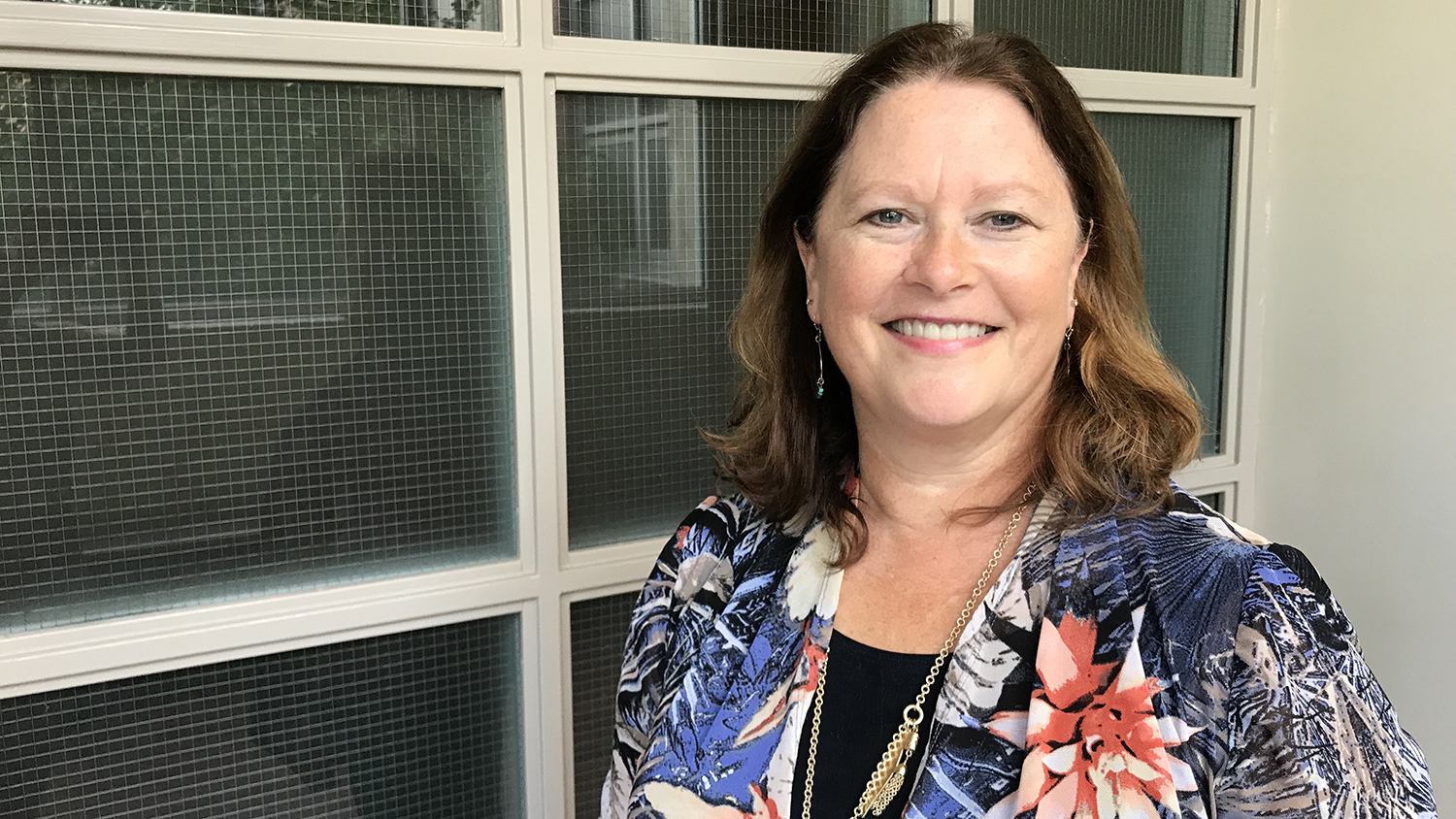Leigh Shamblin Champions Online Course Quality

Leigh Shamblin wears many hats. Director of leadership, professor of practice, and a Quality Matters-certified peer reviewer — just to name a few.
Within the Department of Management, Innovation and Entrepreneurship in the Poole College of Management, Shamblin brings a wealth of knowledge in strategic leadership, design and systems thinking, business consulting, and many other areas to her teaching.
Shamblin provides direction and leadership throughout Poole College’s programming including in the Jenkins Professional Online MBA.
As a Quality Matters (QM) peer reviewer, Shamblin is responsible for engaging with all elements of a faculty member’s online course and giving feedback on the extent to which the course meets 42 separate QM standards.
Throughout this work, Shamblin is able to lend her expertise in different areas to help faculty improve their online courses, and in turn, the faculty and courses she helps end up making a huge impact on her own teaching.
In addition to her peers, Shamblin credits DELTA and Poole College for investing in instructional design and professional development. “Both of these have made a very positive difference in my ability to teach effectively!”
The Beginning
Shamblin first became involved in the Course Quality Program at NC State in the fall of 2018 as a participant in the Online Course Improvement Program.
“I was originally interested in the program because I was teaching an online consulting practicum for our MBA programs, and I wanted to make the class as impactful as possible,” she says. “There are a lot of ‘moving parts’ in the class that need explanation.”
Shamblin explains that in a face-to-face class she is able to fill in any gaps in information while physically (and now virtually) with students. For the online class, she worked to make sure students had what they needed, even when she wasn’t readily available to answer questions.
“I loved participating in OCIP — it wasn’t easy, but it was impactful,” Shamblin says. From this experience, Shamblin learned essential and invaluable elements of online course design and pedagogy.
“I especially loved learning how course maps could help me better align course elements. For example, in developing a course map for the consulting course, I realized that I had listed an objective that I wasn’t actually assessing,” Shamblin explains.
The decision to become a peer reviewer came after the positive feedback she received from her students and instructional design staff. Shamblin’s QM-certified course was used as a template and shared freely with others.
“Once other faculty started asking me for help, I decided to become a peer reviewer and further share what I’d learned,” Shamblin says.
Value Add
“I enjoy helping people and being a peer reviewer allows me to do that. This work also helps me keep my teaching fresh. I get to see other courses up close and I learn something new every time,” Shamblin says.
With several reviews under her belt for faculty at NC State and across the UNC System, Shamblin explains the process of examining how well a course meets QM standards which cover a wide variety of aspects, including:
- The instructor’s introduction to the course.
- The alignment of objectives, instructional materials, learning activities and assessments.
- The inclusion of institutional policies and support services.
- Opportunities for student engagement.
- Technology.
- Accessibility.
“My job is to review the course against each standard and determine if the course meets the standard at the 85% level. Because instructors present information in different ways, I find that I have to put myself in the role of the student often and imagine how the student is experiencing a particular course element in order to determine if the standard is met,” Shamblin says. Of the standards, 23 are considered essential and must be met to earn official QM course certification.
To wrap up the review, Shamblin discusses her findings with other members of the review committee. When serving as a chair of a review committee, Shamblin would also be responsible for working with faculty and the committee to manage the review process.
“I’ve learned from other faculty who do their course introductions through video well or provide specific grading criteria to make everything clearer for students, or who are really strong on student engagement. Every time I work with the QM standards, I find something that I can bring back to the design of my own courses. That’s powerful.”
Shamblin adds, “I believe I’ve been able to help the faculty members teaching all of the courses I’ve reviewed to feel more confident about their online courses by highlighting what they are doing well as well as opportunities to strengthen their course design. This is especially important now that all of our courses have to have an online component in response to COVID.”
Poole College and the Department of Management, Innovation and Entrepreneurship have seen benefits to Shamblin’s service as a peer reviewer. Since she’s able to share what she’s learned, other faculty are earning QM certification for their courses.
“Beth Shepherd, our director of instructional design, has done a fantastic job leading the effort to improve online instruction in Poole College for the past several years. As a result of this work, and because of what we’ve done with QM, we were much better prepared to pivot to online learning when COVID-19 hit,” Shamblin adds.
Get Involved
Shamblin notes that QM is a straight-forward approach that really works.
“If you have been teaching a class online for a few semesters and you want to make it as impactful as possible, I encourage you to work with DELTA to pursue QM certification,” she says. “The entire team at DELTA is amazing and I love working with them!”
“Their goal is to help you make your course design effective and they are true partners in the process,” Shamblin adds.
Shamblin says once you go through the QM certification process, you’ll have a much better idea of the work involved and will know if you’d like to take the next step by becoming a peer reviewer.
And if you are interested in getting involved in the Course Quality Program at NC State, be on the lookout for applications for fall programming coming later this spring. Once you complete either the QM Certification Pathway or the QM Essentials Pathway, you are eligible to continue on to Wolfpack Peer Reviewer Pathway.
Becoming a peer reviewer not only impacts others but also your own approach to quality course design and development. Reach out to Bethanne Tobey at bwtobey@ncsu.edu if you have questions about the Course Quality Program at NC State.


